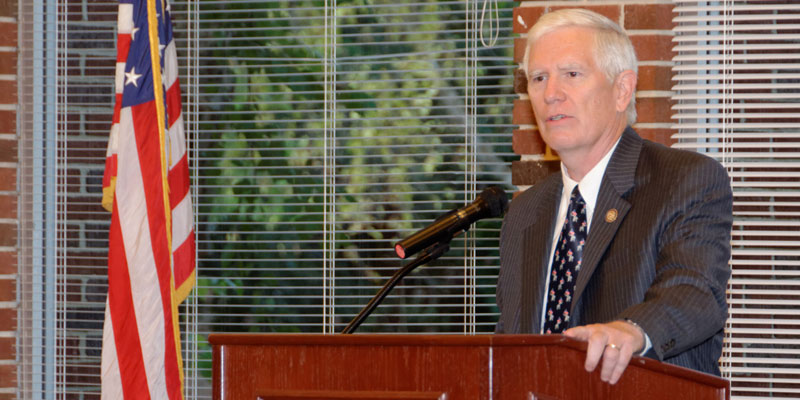
Never one to flinch from a stand on principle no matter whose ox is gored, Alabama’s 11th U.S. Court of Appeals Judge Bill Pryor on Wednesday used a New York Times column to criticize the court-packing proposals of many of his conservative friends.
Pryor is right, and deserves points for logic and courage.
Pryor’s column was headlined, quite simply, “Conservatives Should Oppose Expanding the Federal Courts.” In it, he took aim at a proposal by distinguished law professor Steven Calabresi, a founder of the conservative-leaning Federalist Society, to more than double the number of federal appeals court judges and to expand the number of federal district judgeships by some 25 percent. Calabresi argued that court caseloads have grown far faster than the number of judges has.
Other leading conservatives, seeing the chance to ensconce conservative court majorities for years to come, have rallied to Calabresi’s call.
Pryor has been an active member and favorite of the Federalist Society since 1984, but that didn’t stop him from respectfully disagreeing this time. He noted that court-system reforms – both via congressionally passed laws and by administrative advances – have made it easier for the courts to handle cases more efficiently, especially when combined with new information technology.
“Many of Professor Calabresi’s ideas lack common sense,” Pryor wrote. “For example, he says that my court, the 11th Circuit in Atlanta, optimally should have 56 judges, even though we expeditiously administer our current caseload with 12 judges…. No appellate court could operate on that scale; judges who must decide appeals collegially would barely know one another. Jumbo appellate courts would be unmanageable.”
Another result, Pryor explained: “Expanding the number of judges as his plan calls for would leave scores of federal judges with little more than a part-time job.”
Look, if most people were constitutionally guaranteed a decent-paying job for life (or “good behavior”), and then offered a chance to have their workload cut in half while keeping the job anyway, and they were only concerned about their own comfort rather than the public good, they would jump at the chance to have others appointed to share their workloads. But Pryor isn’t like that. The man should know if he is overworked. He says his docket is manageable. There’s no reason to disbelieve him.
Calabresi may be using good logic and sound numbers, but an outdated understanding of court systems that makes the numbers and logic less relevant to current practices. Pryor, for honorably conservative reasons, thinks no branch of government should be expanded without good reason. His stance may make him temporarily less popular among some of his conservative friends who want to more rapidly take over the courts, but it shows a judiciousness as admirable as it is rare.
Yellowhammer Contributing Editor Quin Hillyer, of Mobile, also is a Contributing Editor for National Review Online, and is the author of Mad Jones, Heretic, a satirical literary novel published in the fall of 2017.












